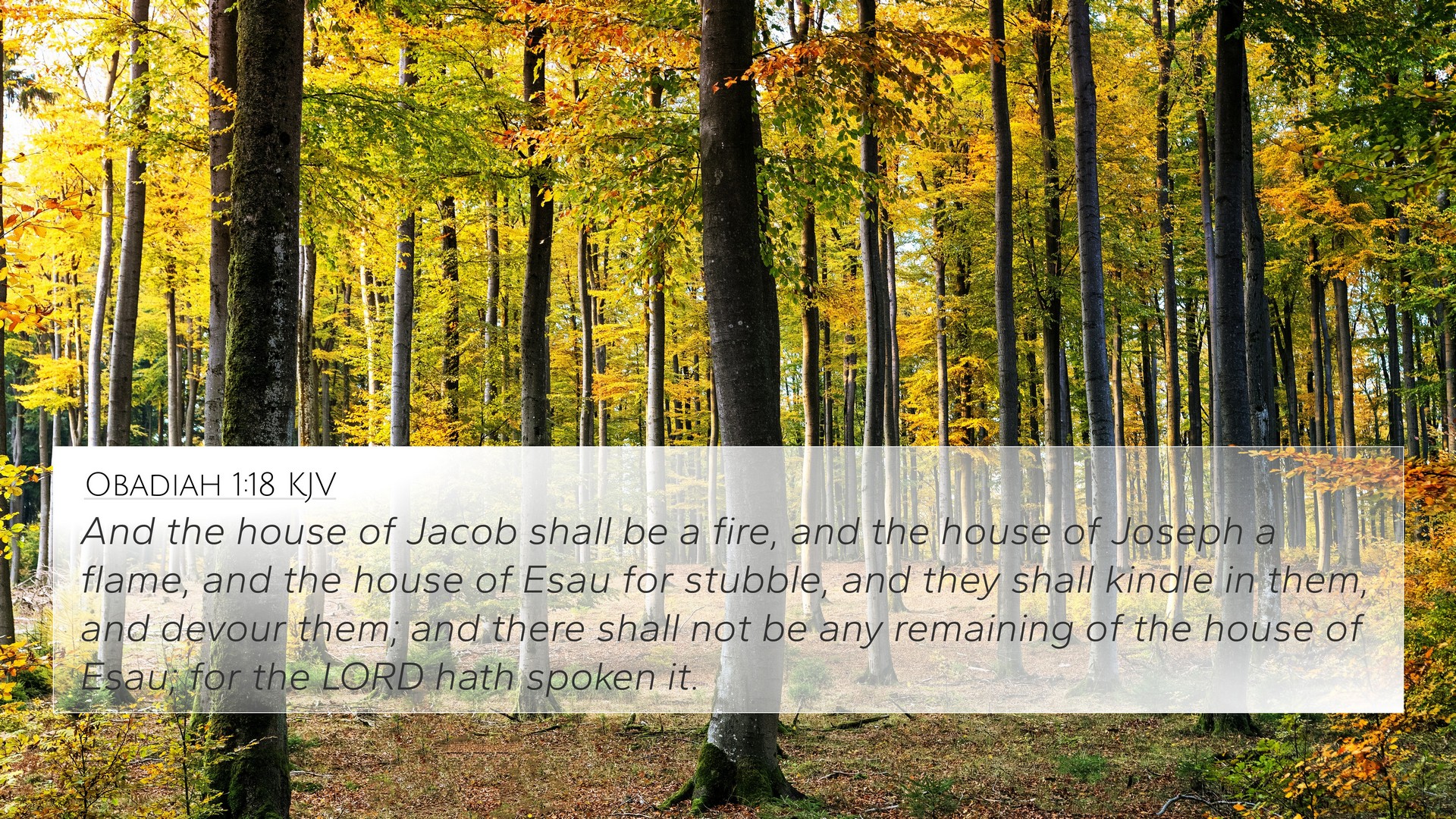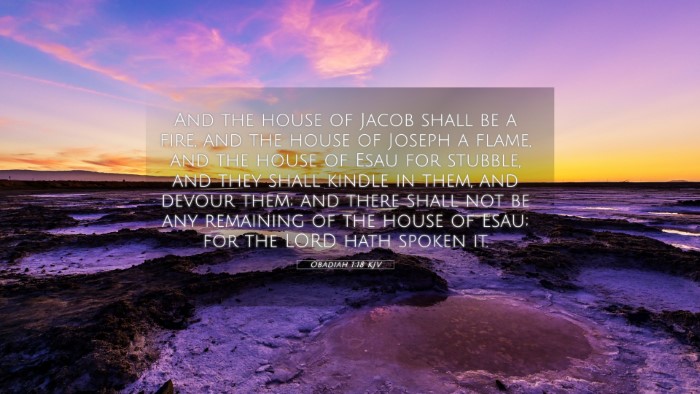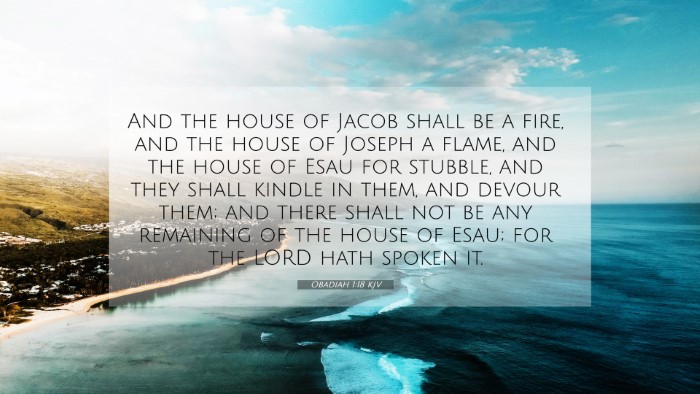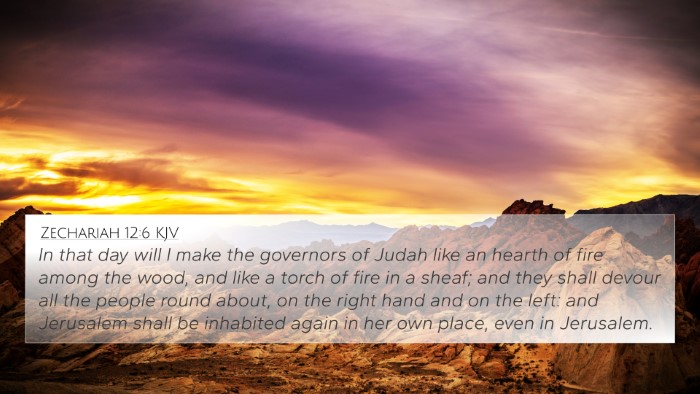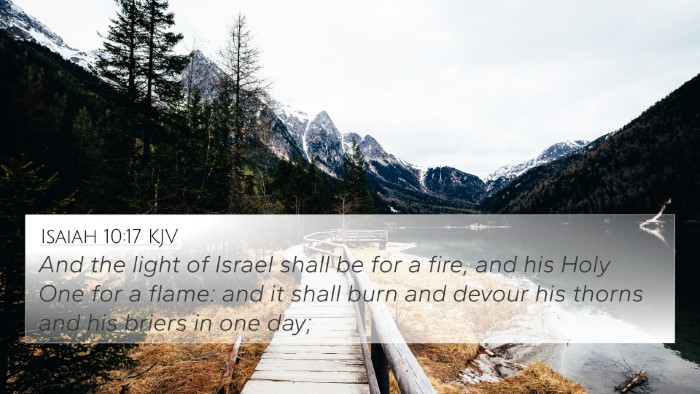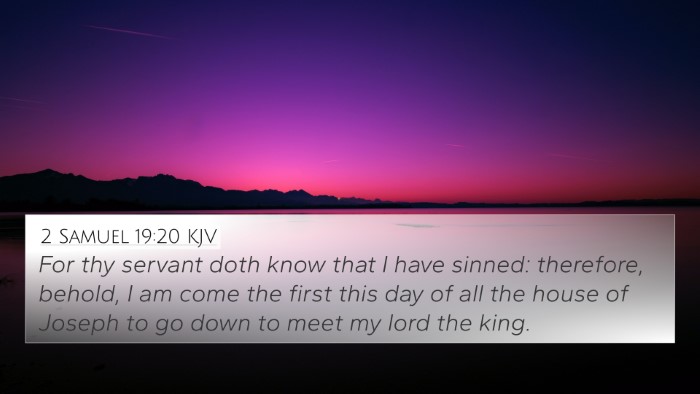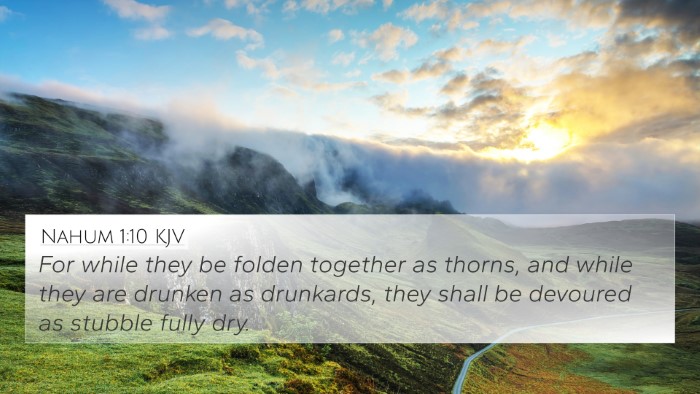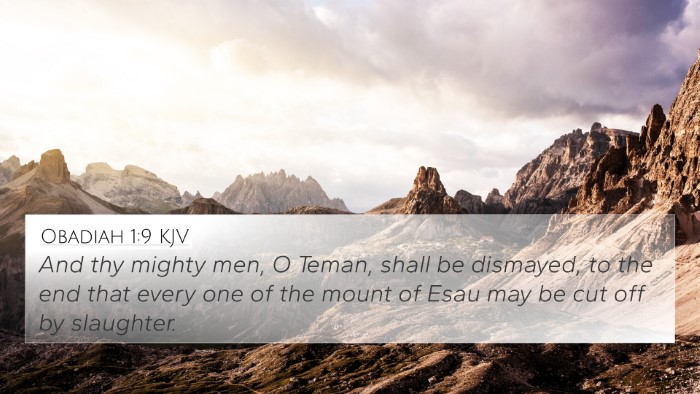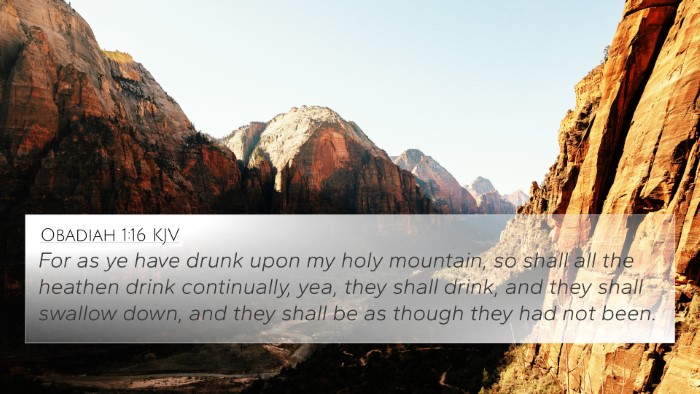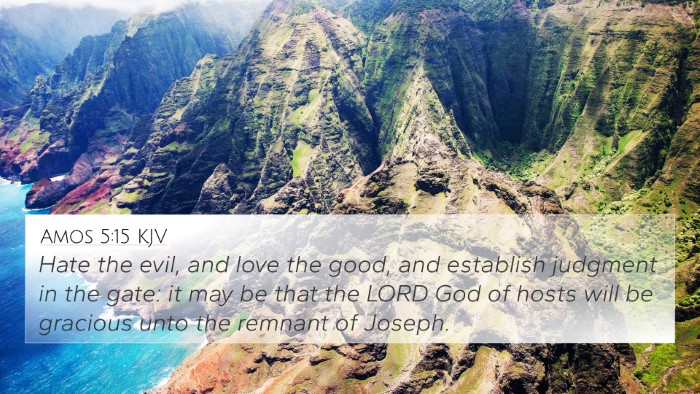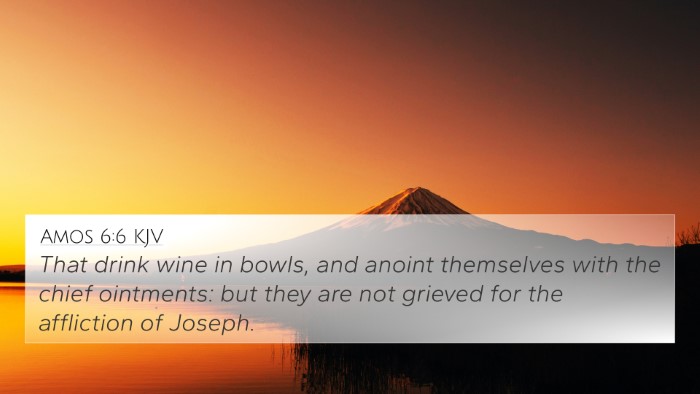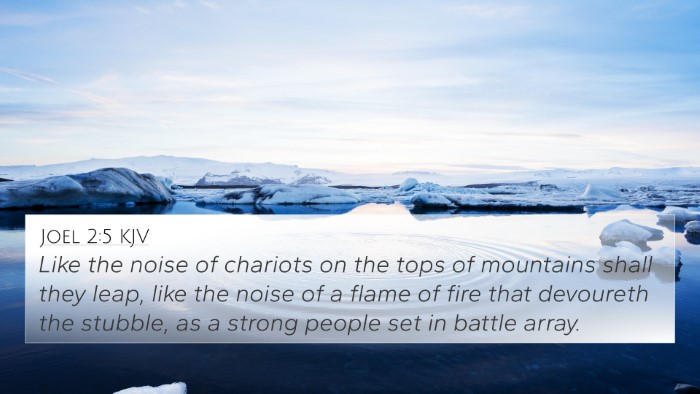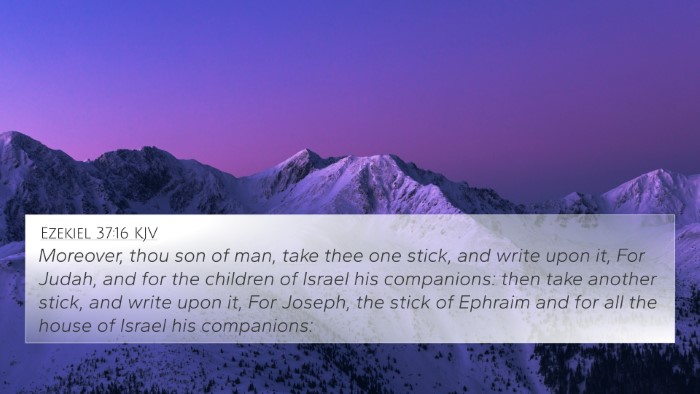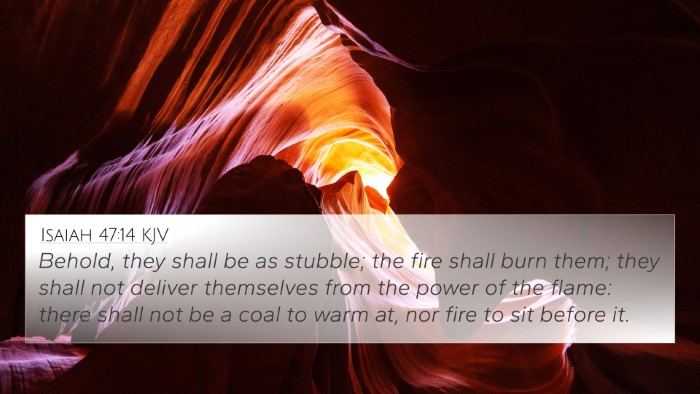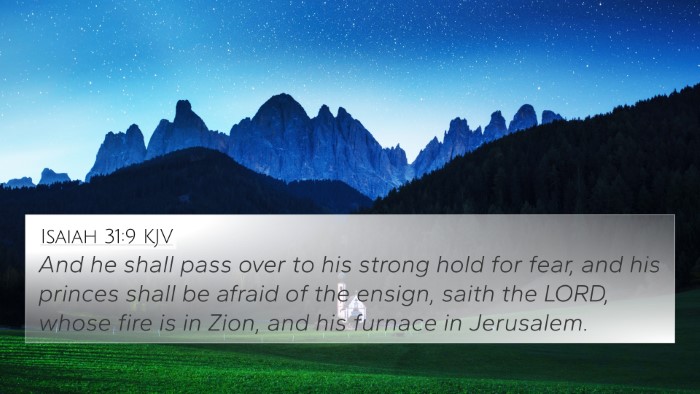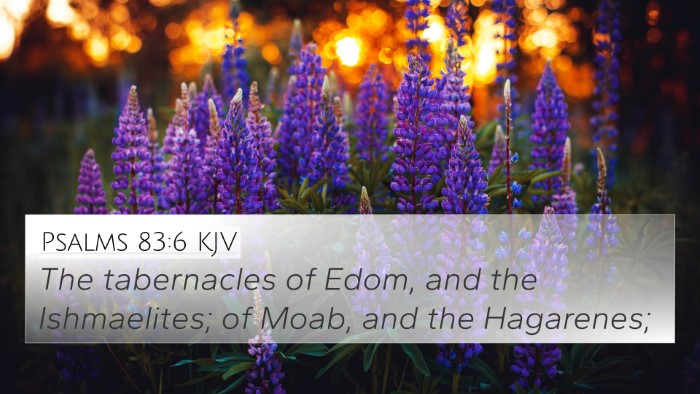Understanding Obadiah 1:18
Verse Reference: Obadiah 1:18
This verse states, "The house of Jacob shall be a fire, and the house of Joseph a flame; but the house of Esau shall be stubble, and they shall kindle in them and devour them; and there shall not be any remaining of the house of Esau, for the LORD hath spoken it."
Summary of the Verse
Obadiah 1:18 uses vivid imagery to portray the ultimate fate of the house of Jacob and the house of Esau. Jacob's descendants, symbolizing Israel, are represented as a consuming fire, while Esau's descendants represent Edom, described as stubble, easily consumed by the flames. This demonstrates the sovereignty of God in the judgment and the ultimate victory of His people.
Commentary Insights
Matthew Henry's Commentary
Matthew Henry notes that this verse signifies the total destruction of Edom, contrasting it with the flourishing condition of Israel. He emphasizes that while Jacob (Israel) will thrive and grow strong, Esau (Edom) will face annihilation. Henry articulates the theme of divine justice, showing that the unfaithfulness of Edom results in severe consequences.
Albert Barnes' Notes on the Bible
Albert Barnes elaborates on the metaphoric language, indicating that fire symbolizes power and judgment. He highlights that the phrase indicates not just a temporary victory but a complete eradication of Edom. Barnes connects this to broader biblical themes of divine retribution and the relentless consequences of opposition to God’s chosen people.
Adam Clarke's Commentary
Adam Clarke provides a deeper exploration of the cultural and historical context. He explains that the feud between Jacob and Esau represents a spiritual battle where God's chosen people will always ultimately prevail. Clarke delineates how this prophecy was fulfilled in history and stresses that it reflects God’s ongoing plan and purpose for Israel.
Cross References
This verse relates to several other scriptures that underline the themes of judgment and the restoration of Israel:
- Isaiah 34:5-6: Discusses the Lord’s judgment on Edom.
- Jeremiah 49:16-18: Describes the destruction of Edom and its desolation.
- Malachi 1:3: Proclaims God’s hatred towards Esau and the desolation of Edom.
- Romans 9:13: References God's love for Jacob and hatred for Esau.
- Psalm 137:7: Remembers the Edomites' cruel actions against Jerusalem.
- Micah 1:2-4: Predicts the fall of the mountains and the judgment of nations.
- Lamentations 4:21: Reflects on the downfall of Edom while Israel suffers.
Thematic Connections
Obadiah 1:18 not only signifies judgment but also serves as a parallel in the themes of restoration presented throughout scripture. The victory of Israel over Edom implies that God watches over His people, providing assurance of divine protection and fulfillment of His promises.
Bible Verse Parallels
Many passages reflect the contrasting fates of Israel and Edom, revealing layers of meaning that interconnect through the history of God’s covenantal relationship with His people.
- Genesis 27:40: Esau's predicted servitude influences his historical enmity with Jacob.
- Hebrews 12:16-17: Warns against the fate of Esau, symbolizing spiritual loss.
Conclusion
Obadiah 1:18 serves to instruct us on the gravity of spiritual allegiance to God. The destruction of Esau symbolizes the consequences of enmity against God’s chosen ones, while the fire of Jacob illustrates God's sustaining power. This verse can enrich our understanding through cross-referencing and inviting us to reflect upon the interconnected themes across the biblical narrative.
Exploring Bible Cross-References
To gain a deeper understanding of this verse and its implications, Bible readers can utilize tools for Bible cross-referencing, such as a Bible concordance or a cross-reference Bible study. These resources aid in tracing thematic connections and uncovering how biblical texts dialogue with one another.
How to Find Cross-References in the Bible
Finding cross-references involves identifying themes, keywords, or phrases that recur across different scriptures. By studying these connections, readers can gain insights into the unity and diversity of God's message throughout the Bible.
